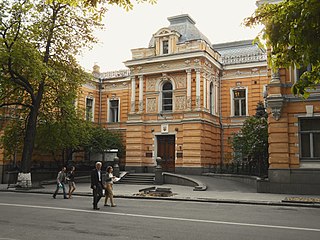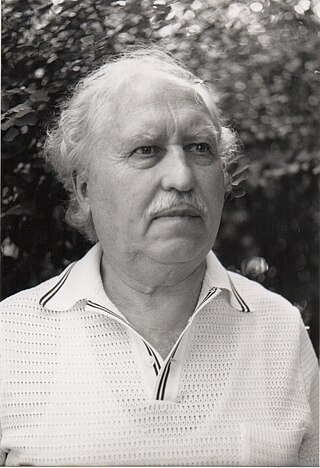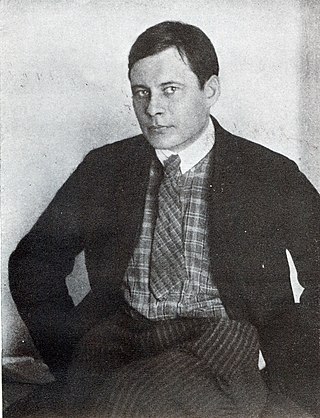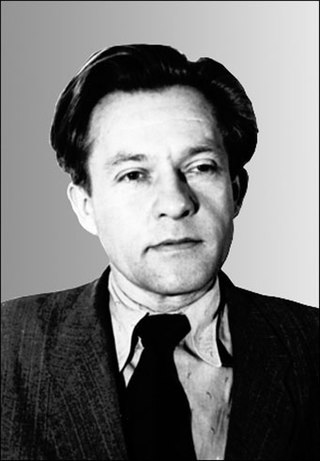
Lesya Ukrainka was one of Ukrainian literature's foremost writers, best known for her poems and plays. She was also an active political, civil, and feminist activist.

Yurii Ihorovych Andrukhovych is a Ukrainian prose writer, poet, essayist, and translator. His English pen name is Yuri Andrukhovych.

Yevhen Mykhailovych Konovalets, also anglicized as Eugene Konovalets, was a military commander of the Ukrainian National Republic army, veteran of the Ukrainian-Soviet War and political leader of the Ukrainian nationalist movement. He is best known as the leader of the Organization of Ukrainian Nationalists from its foundation in 1929 until his assassination in 1938.

Oksana Stefanivna Zabuzhko is a Ukrainian novelist, poet, and essayist. Her works have been translated into several languages.

The National Writers' Union of Ukraine (НСПУ) is a voluntary social-creative association of professional writers, poets, prose writers, playwrights, critics, and translators.

The Russian census identified that there were more than 5,864,000 Ukrainians living in Russia in 2015, representing over 4.01% of the total population of the Russian Federation and comprising the eighth-largest ethnic group. On 2022 February there were roughly 2.8 million Ukrainians who fled to Russia.
Mykola Lukash was a well-known Ukrainian literary translator, theorist and lexicographer. He knew more than 20 languages. Many literary works were successfully translated from the majority of these languages and introduced to the Ukrainian literature by him.

Oleh Suk is a Ukrainian rock musician, specializing in the bass guitar,.

Ivan Feodosiyovych Korsak was a Ukrainian writer and journalist.
Leonid Vysheslavskyi was a Ukrainian poet, literary critic and translator. He wrote in the Russian and Ukrainian languages and published more than 60 books of poems, prose and translations. Vysheslavskyi's works were published in the Ukrainian, Polish, German, French and other languages. He had supporters and friends in many countries.
Contemporary Ukrainian literature refers to Ukrainian literature since 1991, the year of both Ukrainian independence and the collapse of the Soviet Union. From that year on, censorship in the Soviet Union ceased to exist and writers were able to break openly with the official socialist realism style of art, music, and literature. Principal changes had taken place in Ukrainian literature already under Perestroika (1985) and especially after the Chernobyl disaster. Some researchers consider that modern Ukrainian literature was born during the 1970s and founded by Soviet dissidents from the sixties generation.

Rostyslav Dotsenko – Ukrainian translator, literary critic, author of aphorisms and maxims. Member of the National Writers Union of Ukraine. Political prisoner of Stalin's concentration camps.
Krytyka is a Ukrainian intellectual monthly/bi-monthly magazine and publishing house dedicated to in-depth analysis of current affairs, culture and book reviews in Ukraine and the region. Krytyka was founded by the Harvard professor of Ukrainian literature, George Grabowicz, in 1997. The magazine is a partner of the Harvard Ukrainian Research Institute, University of St. Gallen, and an exclusive partner of The New York Review of Books in Ukraine. Krytyka receives support from Western and Ukrainian foundations for its various projects, such as Robert Bosch Stiftung. Krytyka is a member of Eurozine, a network of European cultural magazines, and sees its role in mediating between Ukrainian and global intellectual elites. Since 2014, it is also available in English.

Mykola Riabchuk - Ukrainian public intellectual, journalist, political analyst, literary critic, translator and writer. Riabchuk is known for his analytical articles and essays on Ukrainian politics, national identity and analysis of Ukrainian history from postcolonial perspective. Married to Ukrainian poet Natalka Bilotserkivets.

Ihor Kaczurowskyj was a Ukrainian poet, translator, novelist and short story writer, literary scholar, university lecturer, journalist.

Maik (Mykhailo) Hervasiiovych Yohansen or Mike Johansen – was a Ukrainian poet, prose writer, dramatist, translator, critic and linguist. He was one of the founders of VAPLITE.

Yaroslav Oleksandrovych Halan was a Soviet Ukrainian anti-fascist writer, playwright, publicist, member of the Communist Party of Western Ukraine since 1924, killed by nationalist insurgents in 1949.
Anatoliy Dimarov was a Ukrainian writer. He was awarded the 1981 Shevchenko Prize in literature for the second volume of the novel Pain & Anger.
Mykhailyna Khomivna Kotsiubynska was a Ukrainian literary critic, translator, and active participant of the Sixties movement. Laureate of many prestigious Ukrainian awards: Oles Biletsky Award (1993), Vasyl Stus Prize (1994), Antonovych Prize (1996), All-Ukrainian Literary Award named after Mykhailo Kotsiubinsky (1998), Olena Teliha Award (2001), Shevchenko National Prize (2009), Panteleimon Kulish Award. Knight of the Order of Princess Olga of the III degree (2006). Honored Worker of Science and Technology of Ukraine. Niece of the classic of Ukrainian literature Mykhailo Kotsyubynskyi.













